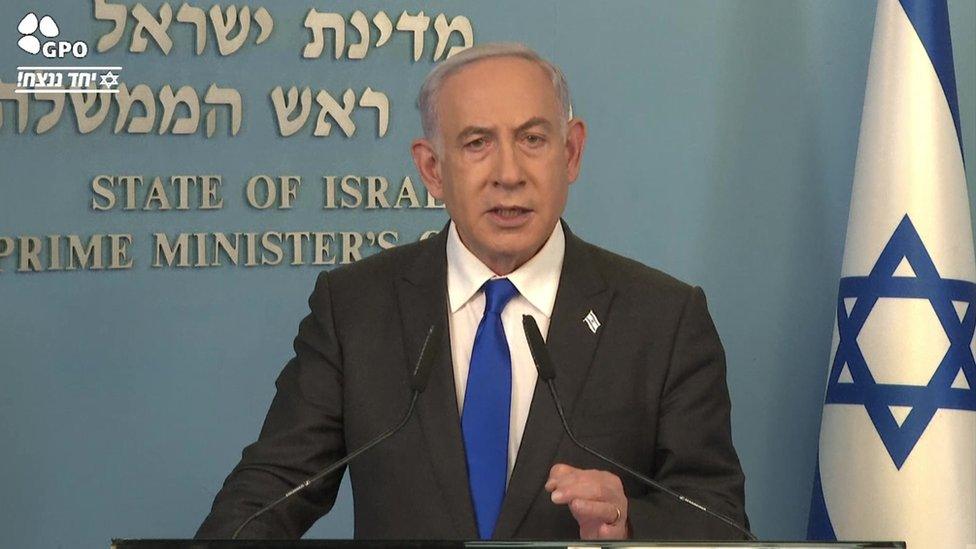Israel rescues two hostages in Rafah amid deadly strikes
- Published
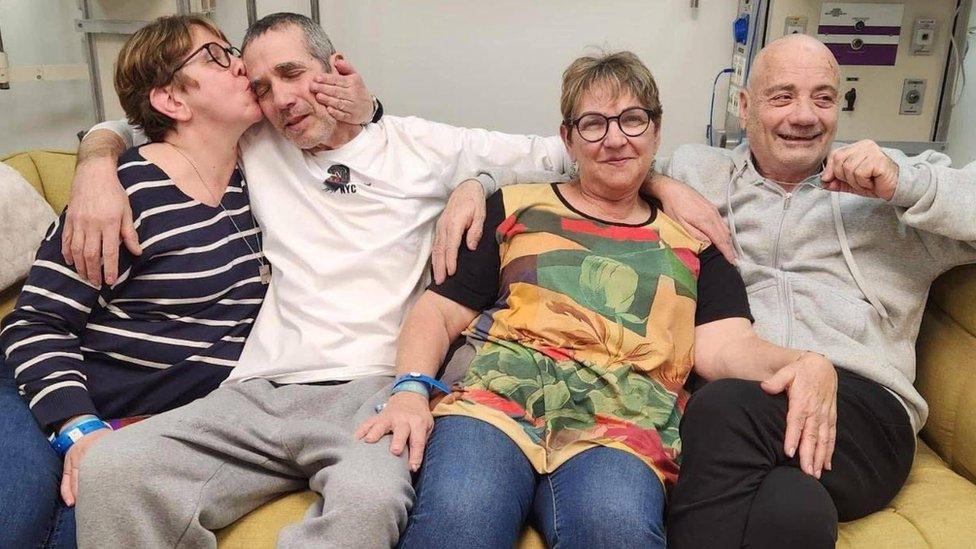
Fernando Simon Marman and Louis Har have been reunited with their families
Israel said two Israeli-Argentine hostages have been rescued in a raid in Rafah, amid heavy Israeli air strikes on the southern Gazan city.
The Israeli military said the two men were in "good medical condition".
The pair were named as Fernando Simon Marman, aged 60, and Louis Har, 70, from Kibbutz Nir Yitzhak.
Some 1.5 million people are sheltering in Rafah. The Hamas-run health ministry said dozens had been killed in the overnight strikes.
It follows warnings from the international community over Israel's planned offensive in the city.
The hostages were found on the second floor of a building in Rafah, said Rear Admiral Daniel Hagari, a spokesman for the Israel Defense Forces (IDF).
He said Israeli forces had engaged in "heavy exchanges of fire at several locations simultaneously, with many terrorists".
Abou Suhhaib, who lives in the Shaboura neighbourhood in Rafah, heard "heavy shooting" and "strong explosions" overnight.
"At approximately midnight, we heard the sounds of strong explosions, as if hell had opened on the civilians," he told AFP news agency.
He described seeing a helicopter landing, adding, "there was heavy shooting, as if it was a very big battle".
There are conflicting reports on Palestinian casualties from the air strikes: the AFP news agency reported that "around 100 people" were killed, citing Gaza's Hamas-run health ministry. Meanwhile, the Associated Press reported that at least 50 people were killed, quoting local hospital officials.
Rafah: The next battle?
In a statement on social media, the Israel Defense Forces (IDF) said that during an overnight "joint operation between the IDF, ISA [Israel Security Agency or Shin Bet], and Israel Police, two Israeli hostages from Kibbutz Nir Yitzhak were rescued: Fernando Simon Marman (60) and Louis Har (70)".
The hostages were taken to Sheba Medical Center in central Israel for tests.
Armon Aek, its acting director, said: "I'm very happy to announce that this night, two released hostages landed here.
"They were received in our ER [examination room] and initial examination was conducted by our ER staff and they are in a stable condition."
They had been kidnapped by Hamas, the IDF said, in the 7 October cross-border attack that triggered the ground invasion.
Mr Marman's niece said she was still "shaking" from the news of her uncle's rescue.
"When I saw him I couldn't believe he was real," Gefen Sigal Ilan told AFP.
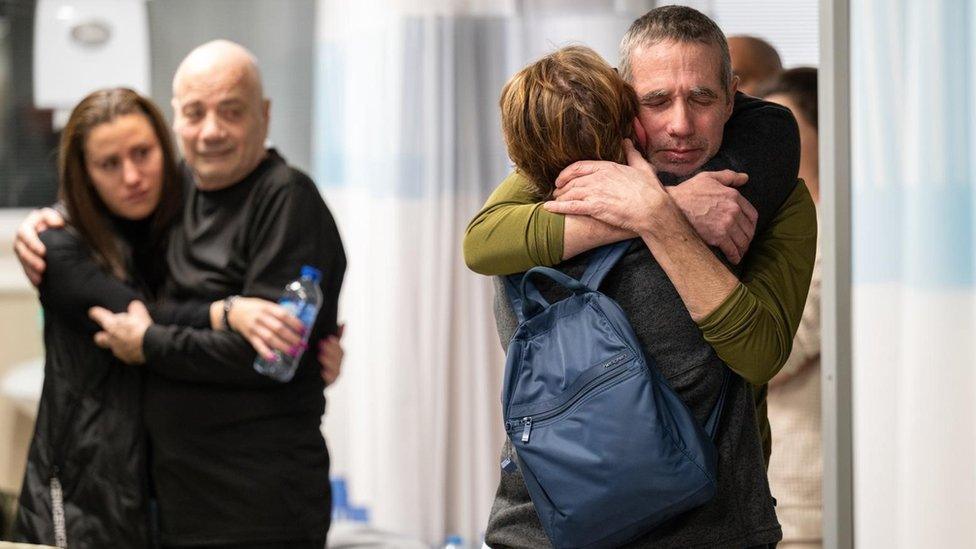
Louis Har and Fernando Marman were taken to Sheba Medical Center in central Israel
Israel's military launched its operations in the Gaza Strip after about 1,200 people were killed in southern Israel on 7 October by Hamas gunmen, who also took 253 people hostage. A number of those hostages were later released.
On Monday, the Hamas-run health ministry in Gaza said 164 people had been killed and 200 injured in Gaza over the last day, although it is not clear exactly how many died in Israeli attacks overnight. The ministry says 28,340 Palestinians have been killed and nearly 68,000 wounded in the Strip since 7 October.
A number of countries and international organisations have warned Israel against conducting its planned offensive in Rafah, where an estimated 1.5 million people have sought refuge. Most of them have fled from the rest of Gaza.
UK Foreign Secretary David Cameron earlier said "over half of Gaza's population are sheltering in the area", while Saudi Arabia warned of "very serious repercussions" if Rafah was stormed.
Rafah - on the border with Egypt - is one of two open points of entry for humanitarian aid into Gaza - the other is Kerem Shalom.
Your device may not support this visualisation
On Sunday, US President Joe Biden told Israeli Prime Minister Benjamin Netanyahu that a Rafah offensive should not happen without measures to ensure the safety of civilians.
Mr Biden said Israel needed a "credible and executable plan" to protect the more than a million people in the city, according to the White House.
Israel's Prime Minister Benjamin Netanyahu has insisted it will go ahead and a plan is being prepared.
Meanwhile, Gaza's Hamas rulers said there could be "tens of thousands" of casualties, warning that any operation would also undermine talks about a possible release of Israeli hostages held in the territory.
Correction 14 February 2024: This article has been amended to make clear that two crossing points are open for aid - Rafah and Kerem Shalom - not just Rafah as we originally reported.
- Published11 February 2024
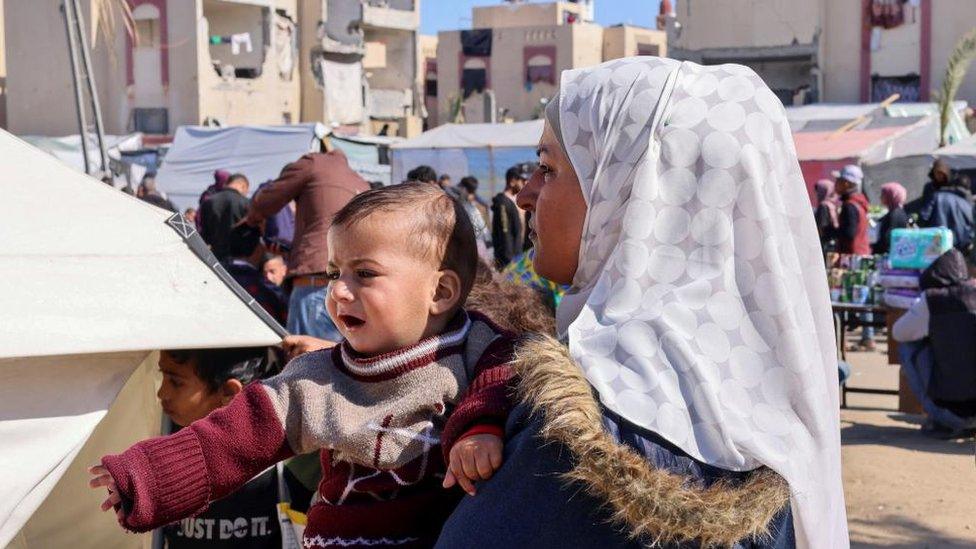
- Published10 February 2024
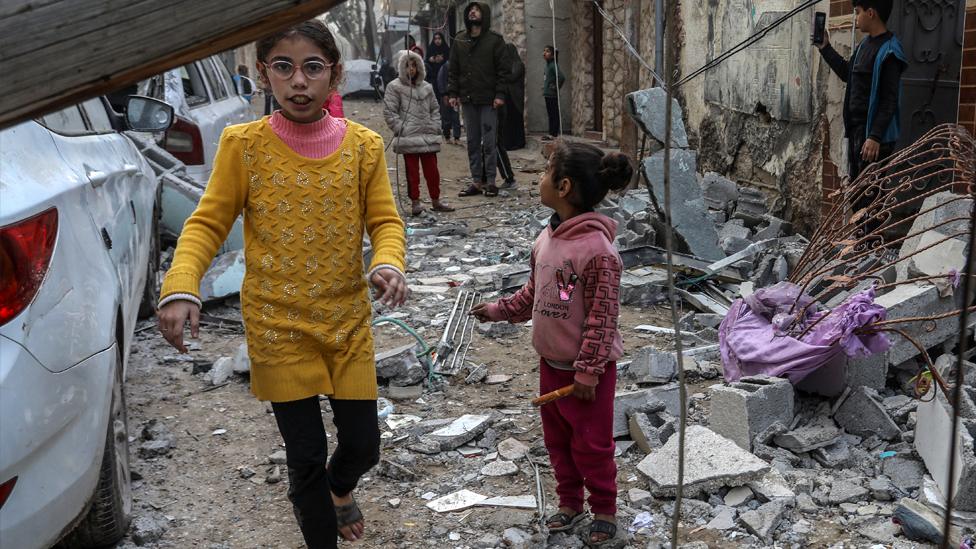
- Published9 February 2024
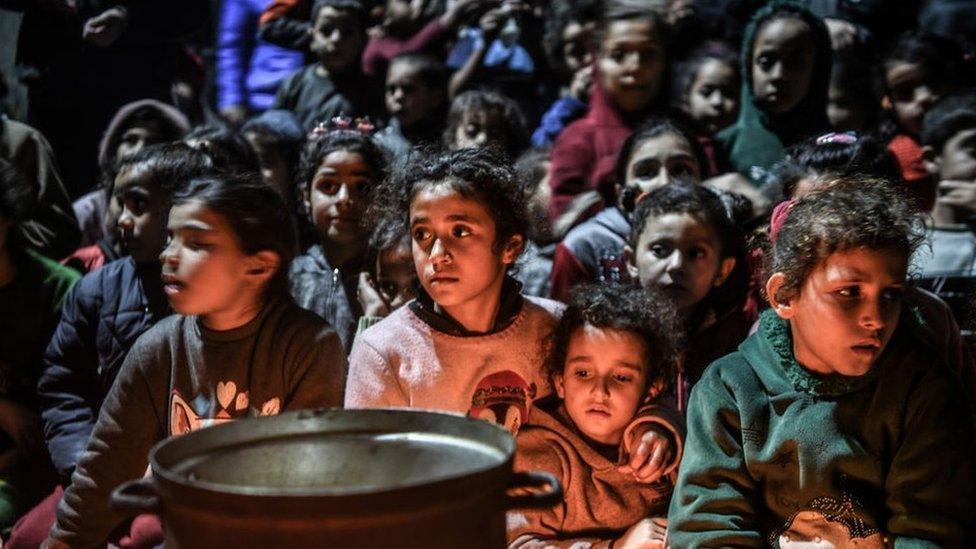
- Published9 February 2024
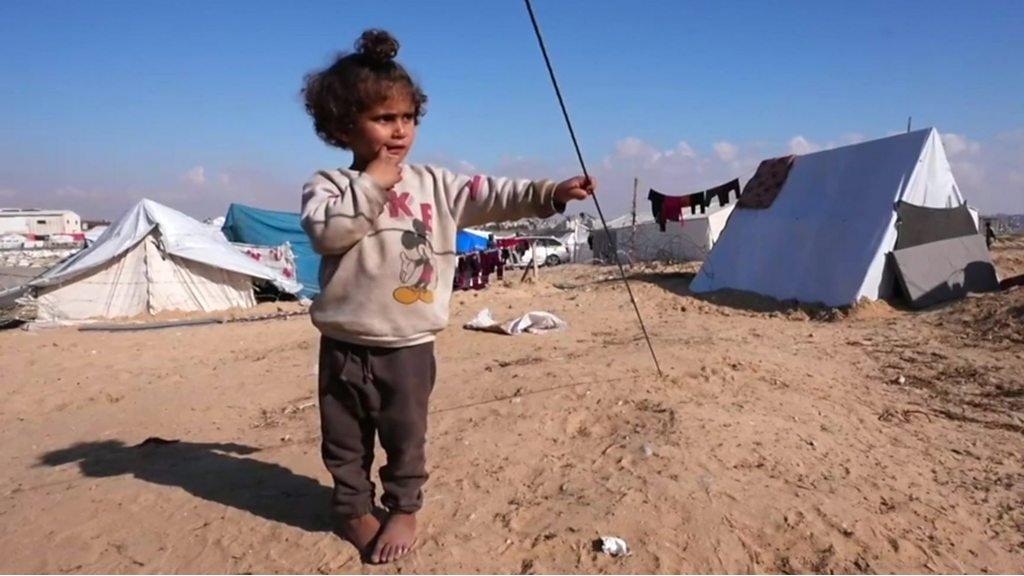
- Published7 February 2024
